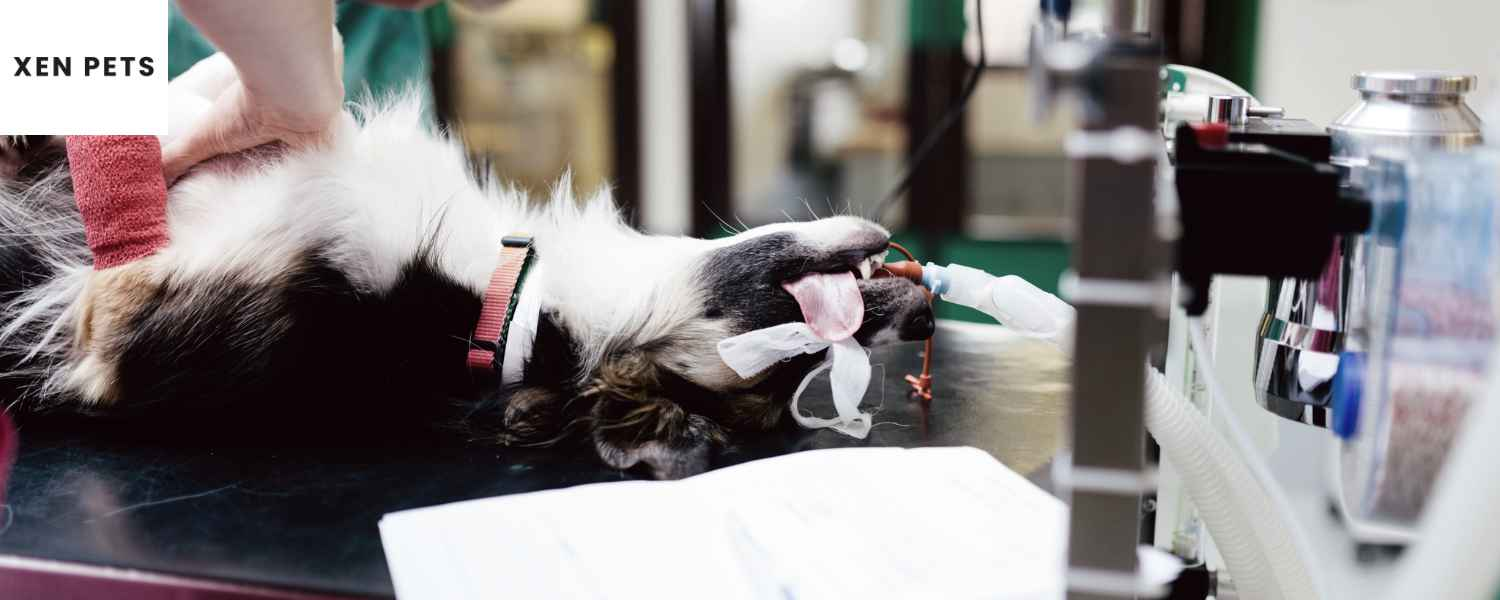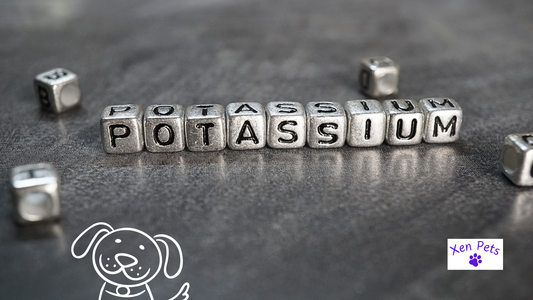Septic Arthritis in Dogs - Symptoms & Causes
Tory JohnsonShare
Septic arthritis in dogs is an infection that occurs within your dog's joints. Septic simply means being infected with a harmful bacteria, fungi, virus, or mycobacteria. It is different from general arthritis in dogs, a degenerative joint disease.
Arthritis is a general term used to classify the different diseases that affect joints. Arthritis is usually noted as causing inflammation among other symptoms.
Before we go on, it's important to understand septic arthritis is a medical emergency and should be addressed immediately. Intervention and early care decreases the likelihood of long term joint damage.

What Is Septic Arthritis In Dogs?
Generally, septic arthritis in dogs occurs after the joint and joint fluid have been exposed. This can happen through surgery, trauma, or even a blood infection or bone infection. All these will leave behind an infected joint that must be treated.
A dog experiencing septic arthritis will quickly begin to experience pain. As the bacteria replicates, it leads to infected joint fluid and inflammation that can break down the joint and it's cartilage. Early treatment options are required to preserve the joints from any long lasting damage.
Luckily, septic arthritis is not contagious and cannot be spread to other dogs. The bacteria itself may potentially be contagious, but this is confined to the joint and joint fluid.

The most common bacteria seen in septic arthritis is MRSA (methicillin-resistant Staphylococcus aureus). MRSA can be spread from pet to pet, human to human, and even pet to human.
Lastly, septic arthritis is very rarely seen in dogs. As discussed, the joint must be penetrated, for example during surgery or in an accident.
Causes of Septic Arthritis
Septic arthritis is generally the result of;
- a penetrating trauma
- a complication during surgery
- a systemic bacterial infection in the joint

Speak with your vet immediately if your dog has an open wound near the joint. The vet may want to prescribe antibiotics, perform a joint fluid analysis, and flush the wound to minimize joint damage.
What Are The Clinical Signs of Septic Arthritis?
Clinical signs of septic arthritis occur from the infection within your dog's body and blood and from pain in the joint itself.
The most common clinical signs seen in dogs:
- Lameness or pain in the affected joints
- Swelling in the affected joint may give off heat
- Decreased or lack of appetite
- Lethargy or sleepiness
- Fever and temperature increases

How To Treat The Affected Joint
Your vet will likely begin a very aggressive treatment of antibiotics to help kill the bacterial septic arthritis.
They may even hospitalize your dog if they are very ill. If this is the case, they will require lavage - a flushing of the infected joint.
Follow Up Care
After an initial dose of antibiotics, your veterinarian may prescribe a lengthy dose of oral antibiotics.
Follow up care and visits to your vet are also recommended. You don't want the infection to come back and cause additional problems within the joint.
Monitor your dog's response to the treatment. Take note of any changes in their appetite, comfort, or gait.
FAQs - Septic Arthritis In Dogs
Can dogs recover from septic arthritis?
Yes, dogs can recover from septic arthritis. It's important to see your vet immediately once you notice the signs of septic arthritis. They will want to perform a physical examination of the joint.
Your vet will likely begin very aggressive antibiotic therapy to help kill the bacterial septic arthritis.
They may even hospitalize your dog if they are very ill. If this is the case, they will require lavage - a flushing of the infected joint.
How serious is septic arthritis in dogs?
Septic arthritis in dogs is very serious. It's recommended to notify your vet immediately. They will want to prescribe antibiotics and potentially flush the infected area immediately.
What are the symptoms of septic arthritis?
The most common clinical signs seen in dogs:
- Lameness or pain in the affected joints
- Swelling in the affected joint may give off heat
- Decreased or lack of appetite
- Lethargy or sleepiness
- Fever and temperature increases
What is the prognosis of septic arthritis?
If antibiotic treatment is absent or delayed, septic arthritis in dogs can lead to joint degeneration and permanent damage.











